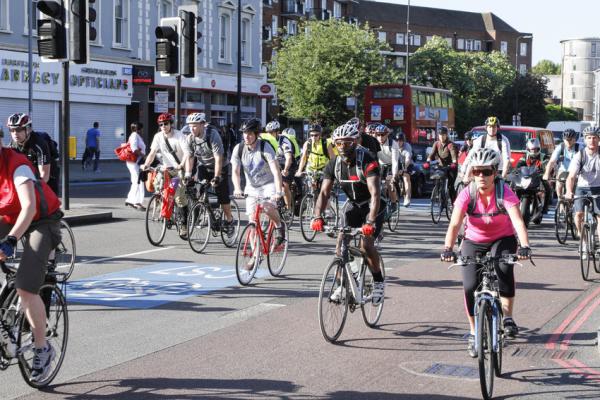Service standards & active travel needed to fix Welsh transport
Published: 23 Jul 2020
The report, entitled ‘A Wales Transport Policy fit for the Climate Emergency’ recommends a major overhaul of the Welsh transport sector, including a transformation of the nation’s walking and cycling infrastructure, to combat the climate crisis.

According to the report, Wales should take inspiration from what is working in other countries.
Zurich canton in Switzerland has introduced universal service standards enabling convenient travel between any places bigger than a small village.
Denmark is building a network of nearly 750km of cycle superhighways for commuters, radiating up to 40km from Copenhagen, to cater for a whole new era of e-bikes.
We can also learn about active travel from the Dutch whose cycling culture did not always exist – their cycling infrastructure and cycling habit have been built up since the 1970s.
Lead author, Ian Taylor, says:
“People living in more rural areas of Wales, who depend on cars to get around, would particularly benefit from Zurich’s service standards, which have resulted in more frequent buses and trains. Under the Swiss system of ‘one network, one timetable, one ticket’, people in Llanidloes, for example, would be entitled to a half-hourly bus service compared to every two hours at present, with buses connecting with every train at the nearest station.
“Commuters across Wales who need to travel within or between towns and cities, would benefit from the Danish system of cycle highways. If we had a similar infrastructure and culture to the Dutch, and e-bikes were widely available, around 30% of commuters would cycle to work across many towns and cities in Wales.
“Even the most rapid predicted switch to electric vehicles will not be quick enough to tackle the Climate Emergency. Although Covid 19 has pushed us in the other direction for the time being, we must switch from cars to other modes of transport as part of our recovery from the Covid crisis. To stand a chance of meeting its climate targets, Wales must stop doing things make the problem worse, like building more roads, which will create more traffic.
“The pandemic shows us that we are capable of making huge changes to our lives in a short space of time. We are walking and cycling more than ever and working from home is the new normal for many. Our transport system must help us all to maintain this new normal which is keeping us safe and lowering our emissions.”
Haf Elgar, Director of Friends of the Earth Cymru, welcomes the report:
“Wales’ transport sector has been responsible for a growing share of our nation’s climate-damaging emissions. As a globally responsible nation, it is time to make the necessary changes now to avoid runaway climate change and keep people safe.
“High quality public transport that meets the needs of people and communities is an essential part of helping us all to drive less for everyday journeys. Especially in the current climate, people must be given safe and reliable alternatives to using the car and feel confident in our transport system going forward. As many journeys as possible should be made on foot or by bike to enable social distancing, prevent gridlock, improve air quality, and reduce greenhouse gas emissions. To do that we must revolutionise our biking and walking infrastructure across the country.”
The report’s other recommendations include transferring planned road-building expenditure to pay for better active travel infrastructure and better public transport, investing in innovative active travel initiatives such as affordable e-bike schemes, trialling free public transport in Cardiff and at least one town elsewhere, fair pricing for driving in Welsh towns and cities to encourage people to switch to green, healthier modes of transport, a nationwide visitor lodging tax, and a payroll levy of employers to fund climate friendly transport.
To introduce such large-scale changes, the report concludes that the Welsh Government must push for more control of rail services and infrastructure and bring all local bus and tram services under the control of local authorities. Only then will it be possible to build a truly integrated transport system, fit for the climate emergency.
